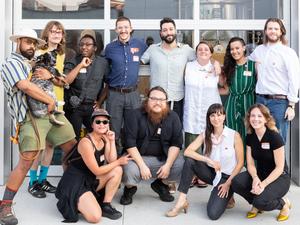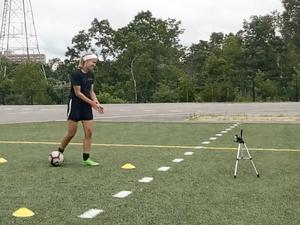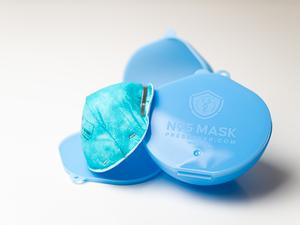
The largest funder of nonprofits in Rhode Island is infusing hundreds of thousands of dollars to assist the state’s medical community in its groundbreaking research.
The Rhode Island Foundation in July announced they were awarding $340,000 in seed funds to 16 promising medical research projects, with the intent of getting the local researchers to a point where they can compete for national funding.
“We’re stewarding the funds that our donors left us for specific purposes, with assistance of experts in field,” Jessica David, executive vice president at the Rhode Island Foundation who oversees grant making, told Rhode Island Inno.
“We are grateful that our generous donors provide the crucial source of seed funding that enables local researchers to pursue promising medical advances."
Grants were given out in individual amounts up to $25,000. Research grant recipients include Brown University, Bradley Hospital, Rhode Island Hospital, University of Rhode Island, The Miriam Hospital, Rhode Island College and Women & Infants Hospital.
With this round of grants, the foundation has awarded nearly $2.5 million in medical research seed funding since 2008.
“We are grateful that our generous donors provide the crucial source of seed funding that enables local researchers to pursue promising medical advances,” Neil D. Steinberg, the foundation’s president and CEO, said in a statement. “Our hope is that their successes will bring about healthier lives as well as a healthier economy.”
The University of Rhode Island will use their funds for a project called “Correlations between Dietary Quality of Food Purchases and Diabetes Prevalence,” led by Maya Vadiveloo, an assistant professor of nutrition and food sciences.
Diet is a major risk factor attributed to seven of the top 10 leading causes of death in the U.S. including chronic diseases such as obesity and type 2 diabetes.
“Research has not explored the correlation between the dietary quality of household-level food purchases and the prevalence of chronic diseases like diabetes and obesity,” Vadiveloo said in a statement. “Enhancing our ability to understand diet-disease relationships using routinely collected dietary data will enable us to develop appropriate interventions to reduce chronic disease burden in the U.S.”
Another recipient, The Miriam Hospital, which is home to the The Lifespan Lyme Disease Center, received $16,000 for a project entitled “Defining Chronic Lyme Symptoms and Quality of Life to Develop Future Interventions,” led by research scientist Sara Vargas, Ph.D.
Rhode Island ranks fifth nationally in Lyme incidence, according to the Centers for Disease Control and Prevention. While many patients recover shortly after antibiotic treatment, some continue to experience symptoms such as fatigue, pain and cognitive disruptions for years after initial treatment.
“The search is underway to develop appropriate diagnostic tests and treatments for chronic Lyme; but, in the meantime, patients are suffering with debilitating symptoms,” said Vargas. “We’ll work with patients at Lifespan’s Lyme Disease Center to generate pilot data that will inform a framework for future behavioral interventions.”
Medical research plays a decent role in Rhode Island’s economy, contributing over 1,160 jobs and over $95 million to state and U.S. GDP, according to a study conducted this year by the Association of American Medical Colleges.








